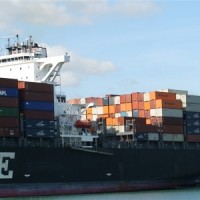
As the U.S. trade deficit – the difference between the amount of goods and services purchased from abroad and the amount exported – has expanded, many Americans have expressed frustration at what they see as using the nation’s wealth to support jobs in other countries. The trade imbalance between the U.S. and China is particularly troubling for many people.
However, the real relationship between international trade and domestic employment is more complex.
Many imports are either raw materials or component parts that go on to become critical inputs for manufacturers based right here in the U.S.
This makes the overall impact of expanded global trade on domestic employment difficult to calculate with any level of precision. Trade agreements create new jobs as a result of expanded export opportunities or access to cheaper industrial inputs. However, free trade can also eliminate U.S. jobs, as some companies give in to the temptation to capitalize on the availability of cheap labor in other countries.
In reality, jobs are constantly being created and destroyed by market forces, and this would be the case – albeit, on a lesser scale – even without the rapid expansion of international trade in the last few decades.
Companies that are interested in evaluating international opportunities still have to contend with a variety of obstacles, despite the widespread implementation of free trade agreements and expanding membership in the World Trade Organization. The professionals at a financial project consulting service can help a company capitalize on opportunities while mitigating risks.
For instance, an international tax consultant can help a company determine any unusual liabilities it may be subject to as a result of opening a subsidiary in a foreign company. It is critical to act carefully in unfamiliar markets, which is why access to financial expertise is so valuable for firms pursuing opportunities abroad.